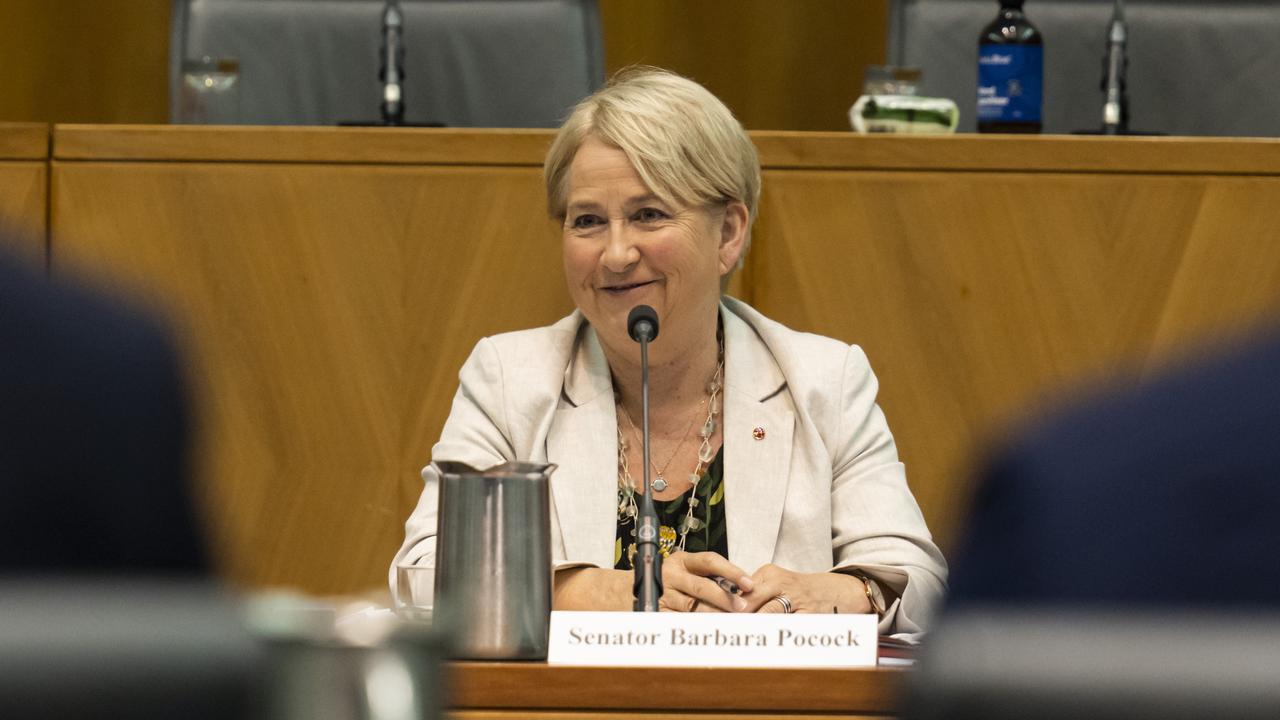As nations push towards four-day week - South Korea reveals ‘toxic’ 69 hour work week plan
Just as Australia and many other nations move closer towards the idea of a four-day working week – one nation is going in a radically different direction.
Work
Don't miss out on the headlines from Work. Followed categories will be added to My News.
Just as Australia and many other nations move closer towards the idea of a four-day working week – one nation is going in a radically different direction.
South Korea’s conservative government has proposed raising the work week from 52 hours to a whopping 69 hours in the country, triggering a huge backlash and protests from trade unions and employees.
The move is at odds with many other countries around the world with a four day work week gaining momentum, including a landmark report released in Australia on Friday recommending employees continue to be paid full time but just work 80 per cent of the week.

Research released last year found one-in-three Aussies would leave their current job for a company that offered a four-day working week in search of a better work-life balance.
Yet, South Korea’s conservative President Yoon Suk Yeol who took office last May, announced plans to increase the permitted weekly hours that staff can work to 69 hours – which is well above the average 38 hours in Australia.

Already known for its workaholic culture, South Korea’s plan was heralded by the government as a way to combat an ageing population and declining workforce.
The 52 hour week was originally introduced in 2018 and allowed South Koreans to work for 40 hours regularly and 12 hours of overtime, with companies facing penalties if overtime stretched beyond the maximum hours.
The proposed changes would allow business to count overtime either monthly, quarterly or yearly.
However, the opposition Democratic Party, which boosted the work hours five years ago, argued the new plan risked increasing unemployment as it could allow businesses to lay off workers and ask those who stay to work longer hours.
South Koreans already spend far longer at work compared to other countries – working on average 1915 hours a year, compared to 1791 for Americans and 1614 in Australia, according to figures from the Organisation for Economic Co-operation and Development.
President Yoon Suk Yeol has tried to convince the community that the new rules could ultimately give workers more free time and attempted to tackle concerns by saying it would introduce a cap on the number of working hours per month, quarter or year.

It would also ban working more than 60 hour weeks beyond three weeks in a row and would also impose a minimum 11 hour rest period between shifts – but critics argued this didn’t factor in commuting or after work emails.
“The current work-hour system does not convey the increasingly diverse and sophisticated needs of employers and employees by restricting the choices of workers and firms alike,” added Labor Minister Lee Jung-sik.
“This does not fit global standards that stress the right to choose and the right to health.
“We can resolve serious social problems like fast ageing and low birth rates by allowing women to choose their working hours more flexibly.”

Unions have labelled the move as “toxic” with the Federation of Korean Trade Unions accusing the government of “forcing workers into ultra-long hours of intensive work”.
Excessive work hours have been linked to South Korea’s low fertility rate – at just 0.78 it’s the world’s lowest birthrate and well below the replacement rate of 2.8 needed.
Meanwhile, the World Health Organisation has also warned that working more than 55 hours per week was a serious health hazard.
The government is seeking for the plan to be brought to parliament in July for approval.
Australia moving towards a shorter working week
As Korea weighs up longer working hours, many nations including Australia are looking at the benefits of a four-day working week.
Australians could soon be paid their full-time wage to work just four days a week should sweeping proposals from a senate inquiry be adopted.
The landmark report by the select committee on work and care backed a raft of changes, including a year of paid parental leave and the right to disconnect from work outside of hours.
Greens Senator Barbara Pocock, who chaired the inquiry, called on the government to seriously consider the “ambitious” reforms to boost the quality of life.
“In our history, Australia led the world in reductions in the working week in the 1850s. We’re at the other end of the spectrum with too many Australians working very long hours,” she told ABC News Breakfast.

“We need to think more seriously about how we deal with a changed workforce.”
The report recommended the Albanese government trial the 100:80:100 model. Workers would continue to be paid a full-time wage and maintain productivity despite working 80 per cent of the week.
“We heard a lot of evidence … of people who are already working a four-day week in workplaces that are trialling a reduction in working hours and getting very positive results,” Senator Pocock said.
“We’re seeing in the evidence improvements in productivity, a lot greater work and family balance, and really good outcomes in the workplace and at home in terms of relationships and putting your life and your job together.”
The pilot would be spread across the workforce and conducted in partnership with an Australian university.
Labor meanwhile has committed to a reform of the paid parental leave scheme, making it easier for new fathers to spend time at home.
And by 2026, Labor is hoping to boost paid parental leave to 26 weeks total, rather than the 20 weeks currently available.
The Greens are pushing for stronger policies, including superannuation payments for the leave and a clear path toward a full 52 weeks off.
“The government-funded leave should be paid at least at the minimum full-time wage, with consideration given to encouraging employers to top up payments to full wage replacement,” the report states.
A review into the idea of the 38-hour work week and whether stronger penalties were required for employers who made staff work long hours should be considered by the Fair Work Commission, the inquiry said.

Another key recommendation from the report was restricting employers from contacting employees outside of work hours unless it’s an emergency.
“What people are saying is, can we work our working hours and once we’re beyond those, unless it’s absolutely urgent, we should be able to turn the phone off and not be at its beck and call,” Senator Pocock added.
While the report had the broad support of Labor and Coalition Senators, additional comments provided by government members noted the reforms might not be possible in the current economic environment.
“This fiscal reality necessarily imposes constraints on social policy,” Labor Senators Deborah O‘Neill, Jana Stewart and Linda White said.
“It is now the role of government to consider the report and its recommendations within the context of broader budgetary and legislative constraints.”
Research shows dramatic impact of four-day week
This all comes as recent research has found that staff on a four-day work week are more productive, with companies which took part in the experiment seeing their revenue dramatically increase.
The first large-scale study of its kind, released in December, is the latest in the push to reduce the mandatory five-day working week.
Australia was one of the countries involved in the study, which also included New Zealand, the US, Canada, the UK and Ireland.
Over 10 months, nearly 1000 employees at 33 different companies took part in the trial.
Their hours were cut down by an average of six hours and they worked one less day a week, while still receiving their regular full-time salary.
The report found that revenue rose 8 per cent during the trial, but it was up a whopping 38 per cent from the same period a year earlier.

Employee absenteeism also dropped and 67 per cent of employees said they were less burnt out.
Staff also reported less fatigue, with levels going down from 66 per cent before the trial to 57 per cent after the trial. Insomnia and sleep problems for employees also went down by 8 per cent.
It was such a success, that two-thirds of the firms decided to retain the four-day work week, including the Australian offices of Unilever.
Companies rated the overall experience a nine out of 10, with resignations dropping slightly and the ability to attract new workers also increasing.
The research was co-ordinated by not-for-profit advocacy group 4 Day Week Global in partnership with researchers at Cambridge University, Boston College and Oxford University.
“This is important because the two-day weekend is not working for people,” lead researcher Juliet Schor told Bloomberg.
“In many countries, we have a work week that was enshrined in 1938, and it doesn’t mesh with contemporary life. For the wellbeing of people who have jobs, it’s critical that we address the structure of the work week.”
Other than the US, Australia was the largest participant in the study.
Originally published as As nations push towards four-day week - South Korea reveals ‘toxic’ 69 hour work week plan









